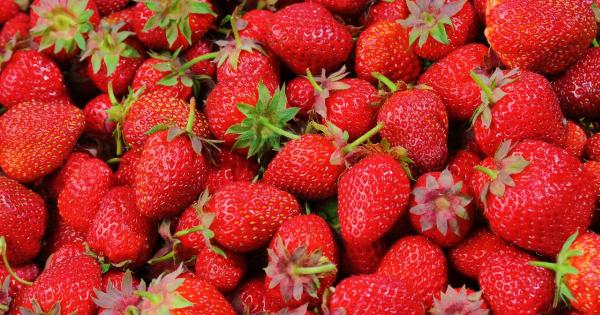Expecting a baby is an exciting time in a woman’s life. It’s a period filled with anticipation, joy, and some anxiety. One crucial aspect of this journey is maintaining a healthy and balanced diet.
Eating right during pregnancy is essential for the overall well-being and development of both the mother and the baby. In this article, we will discuss some useful tips to help you keep your diet in check throughout your pregnancy.
1. Focus on Nutrient-Rich Foods
During pregnancy, it’s essential to consume a variety of nutrient-rich foods that provide the necessary vitamins, minerals, and other essential nutrients for the growth and development of your baby.
Opt for foods that are rich in folate, iron, calcium, protein, and omega-3 fatty acids. Include plenty of fresh fruits, vegetables, whole grains, lean meats, fish, and dairy products in your daily meals.
2. Get Your Protein Fix
Protein is a building block for your baby’s growth and development. Incorporate lean sources of protein such as poultry, eggs, fish, beans, lentils, and tofu into your diet.
These foods are also rich in essential nutrients like iron and calcium, which are crucial for both you and your developing baby.
3. Don’t Forget the Calcium
Calcium plays a vital role in the development of your baby’s bones and teeth. Make sure you include calcium-rich foods like milk, yogurt, cheese, and fortified plant-based milk alternatives in your diet.
If you have any dietary restrictions or are lactose intolerant, consult your healthcare provider for suitable alternatives or calcium supplements.
4. Sufficient Iron Intake
Iron is essential for maintaining healthy blood circulation and preventing anemia during pregnancy. Include iron-rich foods like lean meat, poultry, fish, legumes, fortified cereals, and leafy green vegetables in your diet.
Pairing these foods with vitamin C sources like citrus fruits or tomatoes enhances iron absorption.
5. Hydration is Key
Staying hydrated is crucial for your overall health and well-being during pregnancy. Aim to drink at least 8-10 cups of water per day.
Dehydration can lead to complications such as constipation and urinary tract infections, so it’s essential to keep yourself adequately hydrated.
6. Limit Caffeine Intake
While it’s generally safe to consume caffeine in moderation during pregnancy, excessive intake can pose potential risks. It’s advisable to limit your caffeine intake to 200 milligrams per day.
Opt for decaffeinated versions of your favorite beverages or choose caffeine-free alternatives like herbal teas.
7. Say No to Raw or Undercooked Food
During pregnancy, it’s crucial to avoid consuming raw or undercooked foods, as they may contain harmful bacteria like salmonella or listeria. Always cook meat, poultry, and seafood thoroughly to kill any potential bacteria.
Avoid unpasteurized dairy products and soft cheeses like feta or brie, as they can harbor listeria.
8. Stay Away from Certain Foods
There are certain foods that should be avoided during pregnancy due to their potential risks. These include raw or undercooked seafood, deli meats, unpasteurized cheeses, raw or undercooked eggs, and high-mercury fish.
It’s important to familiarize yourself with this list and avoid these foods to protect yourself and your baby.
9. Listen to Your Body
Each pregnancy is unique, and your body will have its unique cravings and needs. Listen to your body’s cues and eat when you’re hungry. It’s important to strike a balance and not overindulge in unhealthy foods.
If you have any concerns or doubts about your cravings or appetite, consult your healthcare provider for guidance.
10. Maintain a Healthy Weight
Gaining weight during pregnancy is normal and essential for the healthy development of your baby. However, it’s crucial to maintain a healthy weight gain and not exceed the recommended guidelines.
Consult with your healthcare provider about the appropriate weight gain range for you based on your pre-pregnancy BMI.
In Conclusion
Expecting a baby is a time of great joy and anticipation, and maintaining a healthy diet is crucial for both the mother and the baby’s well-being.
Focus on consuming nutrient-rich foods, meet your protein and calcium needs, and pay attention to your body’s cues. Avoid foods that pose potential risks and maintain a healthy weight gain. Remember, a balanced and healthy diet will contribute to a healthy pregnancy and set the stage for a bright future for both you and your baby.






















